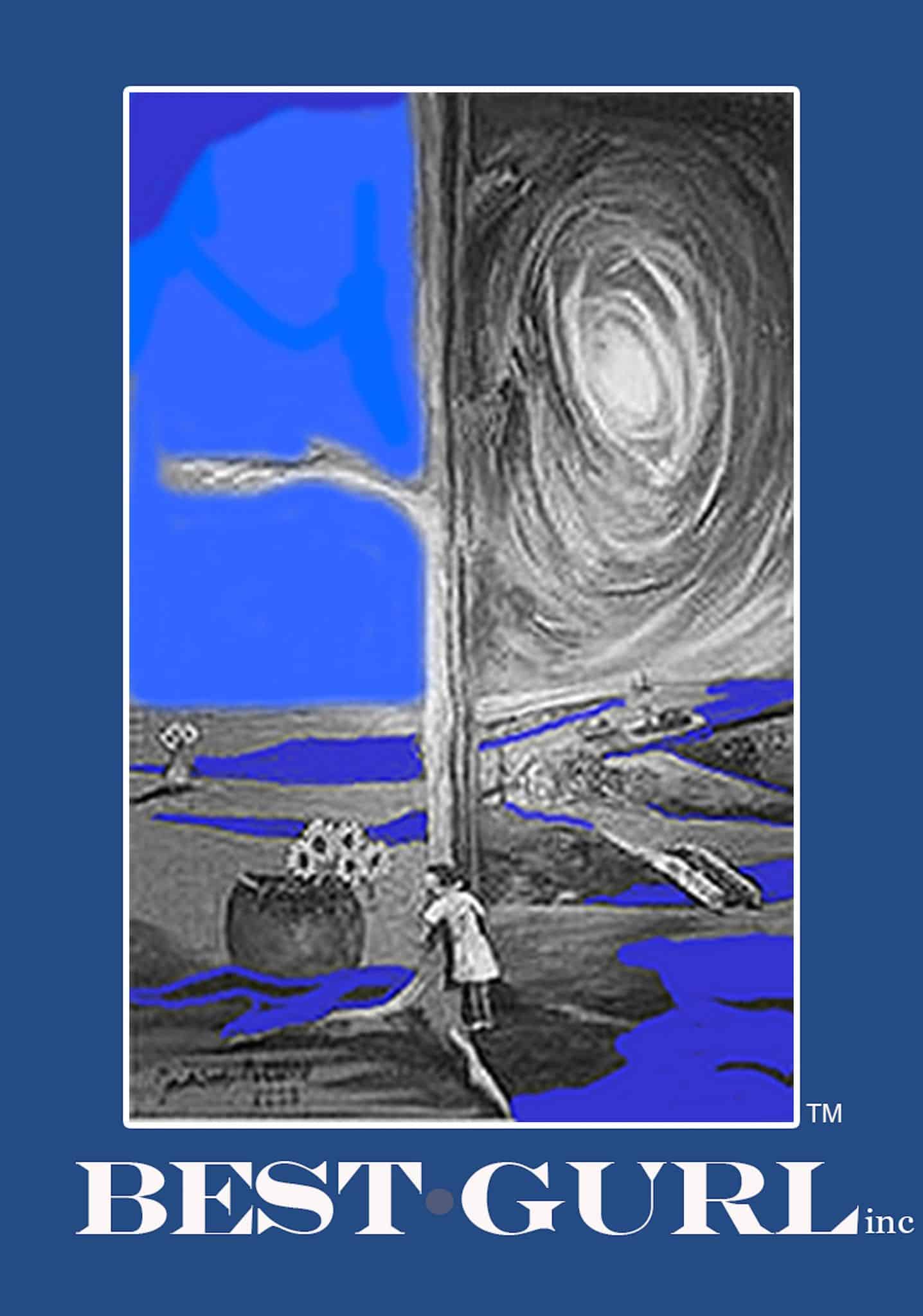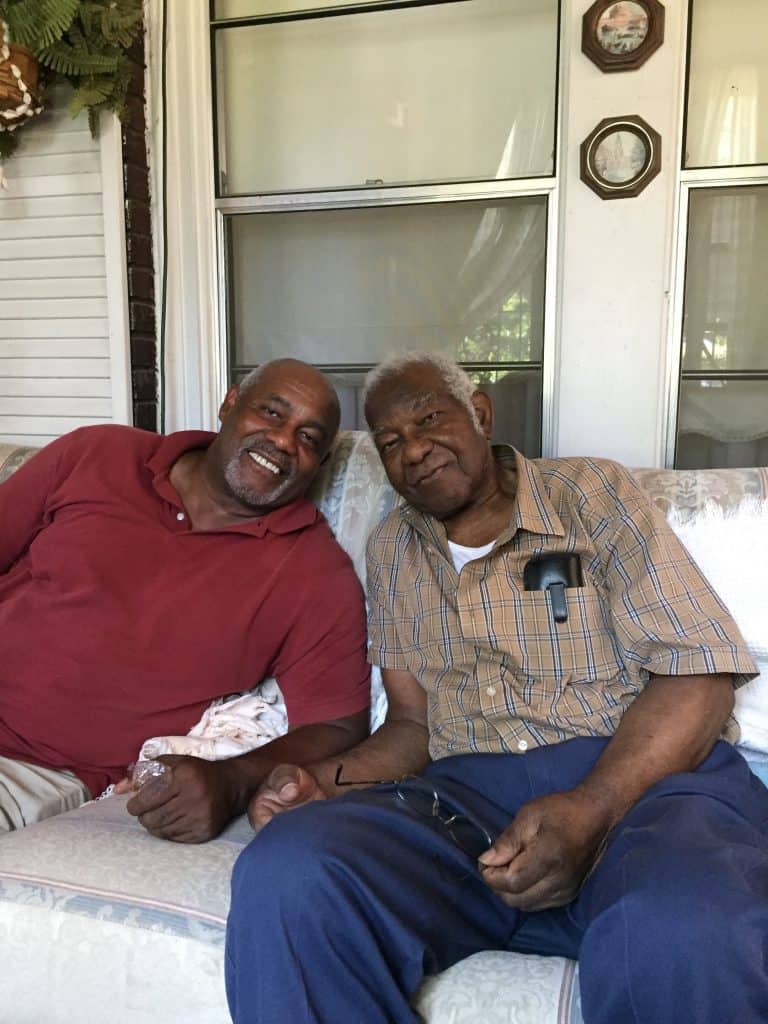

I’m in love with my dad.
Do I love him? Yes. But I’m talking about being in love. I like him. I like being around him. He’s funny. He makes me laugh. He’s special.

You see I didn’t grow up throwing the ball with him in the backyard. We never sat by the fireplace and had older man, younger man talks. No, my dad worked all the time, all the time. He left home for his pipe shop job around 4:30 am, returned around 3 pm and would leave again around 4:00 pm for his nighttime janitorial job. On the weekends he did plumbing with a family friend, Goat.
Yet, as much as he worked, we all knew he was there for us, a reasoning safe presence. For me, his oldest and only son, he foresaw a changing world. A world he was willing to send his son into but would not live in himself. He accepted his supporting role in life but wanted a starring role for his son. So he worked. He worked to make the funds necessary to send me, and my two sisters, to private school, buy us a house, allow us to live comfortable lives. When things got tight, we, the children, would be made aware of it because we were a team and everyone pitched in to make things work.
What I remember most and what I enjoy most now is listening to him talk. Born in 1925, in Elmore County Alabama, he’s seen a world I could not have survived. Almost being accosted by white strangers because they thought my light-skinned mother was a white woman. Having to step off the sidewalk when a white couple approached. Working all day, sun up to sun down behind a mule for 50 cents. Building his own bicycle from spare parts and riding with his brother into downtown Wetumpka, Alabama to go to the movies, and of course, sit in the black section of the theatre. Going to the army at 18. Afterward, moving to Birmingham to join his sisters and brothers as they transitioned from rural country life to city life, marriage and a family.
His wife, my mother, had been raised Catholic and had gone to Catholic schools. She set the standards. He converted to Catholicism. He worked so we could go to Catholic schools. When I became a popular athlete at the school where I integrated the sports teams, what he didn’t understand he didn’t stand in the way of. He never limited me. When I pushed back against his more restrained ways he supported me.
There are times, while visiting him that we will take a drive to visit with his friend, Kit. They worked together at Acipco Pipe. Kit’s ten years younger than my dad and babysits a tire service he runs with his wife. There are few customers so he and my dad can have an hour or two to just talk.
They both survived 35 years in the plant. Made it out. Retired and have lived long enough to enjoy it. They witnessed their place of work go from their supervisor referring to them as “These are my Ni_ _ ers,” to a measure of respect for who they were as men. They laugh a lot at the supervisor who they told jokes to in order to get him laughing and telling jokes. While he entertained them they got to rest.
Our adult worlds have been different; his blue collar, mine entrepreneurial. Sometimes that has been frustrating. When I vent about a client issue, he comes back with “running the ball, but you got to be blocking and you need a tall receiver who can snatch that ball, then you can score the ball.”
Traveling in parallel universes is sometimes frustrating. “What are you talking about?” I wanted to say. But I studied him. Now 93 and hard of hearing, he still is the master of his shrinking domain, holding on to whatever control he can.
I thought about what he’d said. The light went on. It was a strategy. A strategy I could utilize. I would utilize. I had to get back on offense. Score some points. I would.
This trip I spent three days with him. My sisters, his angels, are his full time caregivers. I come in once a month to substitute and give them a tiny break. Daddy and I talk, watch television, go on rides through familiar territory, and eventually nod out on the couch in the evening.
The hardest part is leaving. We always make good eye contact, our eyes express the thankfulness of being in each other’s lives and the loving words he cannot verbalize but doesn’t have to. I know.
He always says, “I hope I see you again.” I always give him a big hug and say, “You will.”
I’m in love with my dad.
Happy Birthday Dad!
Reflecting on Father’s Day, I think about the man for whom I am named and realize how much I lucked out. Man, did I luck out!
I never looked outside our home for a hero or a role model. I never looked to sports figures. My guy was living in the house with us.
Daddy turned 90 this past April. He has a pacemaker and he can be testy but other than that he’s in great shape. He drives his truck, walks in a nearby park, works in his yard and attends church regularly. Watching him as I grew up, I knew he was what I wanted to be as a man.
Daddy accepted responsibility. Born into a sharecropping family in Elmore County Alabama, he grew up poor. He was forced to drop out of school early and often to work in the fields. It’s one of his regrets. “I was a good student,” he tells me. “I was good in arithmetic.” To this day, he can add and subtract numbers in his head if needed. He got his GED after a stint in the army.
He met my mom and began the journey that produced my two sisters and me. He gave his all to us, his family. I was and am his only male child. He taught me. He taught me about work, doing what needs to be done. He taught me about integrity, a man’s word is his bond. He taught me about giving, being there for others whether they were related to you or not. He taught me not to dwell on the negatives of a situation, but to realize I was passing through on my way to somewhere else. He taught me how to love your wife, unconditionally.
When integration came to the South and directly touched our lives, in one fell swoop my life surpassed his in terms of opportunity, unchained boundaries, and new journeys. Although fearful for me at times, he let the reins go. When my new world took me in directions that he could not fathom or wanted to travel in, he let me fly, never wanting to limit or hold me back from the good things I might discover on the journey. He tells me now, “I was afraid for you being in a world I knew nothing about. I’d never had a white friend in my life.” His world was different. But he did not attempt to color mine.
He learned about football when he was a baseball man. He bought us a home, then a bigger one when our family grew. He came to my games when often times he was the only black face in the crowd. He put himself in awkward situations in my new world, where he often felt ashamed of his lack of formal education, but he knew he needed to be there for me. Tears fall from my eyes as I write this because he gave us so much of himself and kept so little for himself.
The story I tell about my dad that makes me most proud, and there are many, is “the snow tale.” We had a massive snowstorm in Birmingham, my hometown, and the city was paralyzed. As an adult I had moved into my own home but kept close ties with Mom and Dad. Knowing they lived on a hill and it would be virtually impossible for them to go anywhere, I called my mom and we chatted about the snow and family matters. I asked to speak with my dad. She said, “He’s gone to work.”
Daddy worked in a pipe shop, American Cast Iron Pipe Company (ACIPCO). I asked, “how?” knowing he could not drive his car up the sloped driveway nor on the closed roads between his home and the pipe mill, which was a good thirty-minute drive from his house. Mom responded, “He left here walking.”
“You don’t work they don’t pay you,” he always told me.
That evening in the local newspaper, there was a shot of a lone figure walking along the railroad track in the snow heading toward the pipe shop, a solitary man doing what he had to do. It was my dad. “You don’t work, they don’t pay you,” should have been the caption.
Daddy worked. He worked at the pipe shop for thirty-five years. He worked a second job at a janitorial service for many years, and he had a “side hustle” as a plumber to pick up the extra money it took to send us to private schools for twelve years.
Because he worked so much, there was little to no time for us to play catch or do the Father-Son things that I might have wanted. But I wanted to be like him. And it wasn’t long before I started down that road of, “doing what it took.”
Daddy left home about five every morning for his 6:00 to 2:30 shift at ACIPCO. He returned around 3:00 in the afternoon before leaving again around 4:30 for the janitorial job. He returned home at 10:30 that night. Before long I was like him, leaving home at 6:15 am to catch the two city buses for the private Catholic High school across town, where I had integrated the football team, and returning at nearly 9:00 every evening after football practice and catching the two buses to get back home. Sometimes we would chat for thirty minutes or so before getting to bed and doing our thing again the next morning.
We talk now and he often tells me of the things he didn’t know when I began my journey into integration, sports integration, big-time college sports, professional sports and the world of white-collar work. He says how he wished he could have done more. “I never had any money to send you when you were in college,” he regrets. “I wish I had known more, so I could have helped you when you were struggling with your coaches and things that were not fair. I didn’t know,” he laments.
I tell him, “Daddy you taught me how to be a good man. It’s the best thing you could have ever done for me.”
The first time I told him I loved him I was well into adulthood. It caught him off guard. Expressed sentiment was not a part of our lives. It was and still is uncomfortable for him. Daddy showed his love for my sisters and me in ways that words could never express and for that I am forever grateful.
For my dad, Tom Gossom, I Love You, Happy Father’s Day.